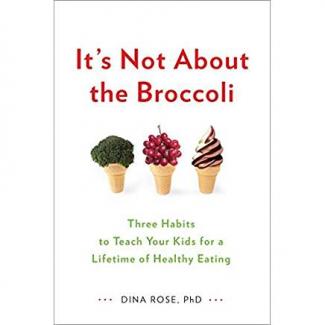Scientists know how vital relationships are to humans, with enormous power in infancy.
Dr. Bruce D. Perry points out that we have changed the way we live (from clans with lots of interactions to households with only a few people): "We have invented ourselves into environments that are relationally disrespectful, that are relationally impoverished."
And he says: "Whenever you create policy, practice or law that’s in synchrony with your biology you see remarkable things happen. But you can’t fight biology very much."
Watch Dr. Perry's talk on Social and Emotional Development in Early Childhood.
* * * * * * * * * * * * *
Dr. Darcia Narvaez wants us to understand how much 'nesting' children need and the consequences of failing to meet their needs.
"Why Provide an Evolved Nest?"
Every animal has a nest for its young that matches up with the maturational schedule of the offspring. Humans too! The Evolved Nest (or Evolved Developmental Niche, EDN, refers to the nest for young children that humans inherit from their ancestors. It's one of our adaptations, meaning that it helped our ancestors survive. Most characteristics of the evolved nest emerged with social mammals more than 30 million years ago.
The USA is experiencing a decline in child and adult physical and mental wellbeing [...]
[...]
Human development is biosocial: healthy bodies, brains and sociality are formed from family and community life experience in early life. If brain and body system thresholds are established suboptimally in early years—not by trauma, but simply by not providing care that children evolved to need, then children may not reach their potential. They may show underdevelopment of concern for others, a sense of social responsibility, and global citizenship.
And in "Getting Back on Track to Being Human" Dr. Narvaez examines the ties between inadequate 'nesting' and some humans' aggression and disregard for the environment.
Why do some humans routinely behave in selfish and even violent ways, preferring dominator culture to partnership culture? Why do some groups of humans, unlike other humans and animals, act in destructive ways toward the ecological systems of our planetary home, despite living within a highly cooperative natural world? How can these misdevelopments be remedied, since they are destroying biocultural diversity, species, ecological balance, and flourishing on our precious planet?
[...]
Because human infants are born so immature—the equivalent of 18 months early compared to other hominids–they require particularly intensive caregiving after birth for proper neurobiological development (e.g., immunity, neurotransmitters, stress response, central nervous system, endocrine systems). All animals have an ecology of being and becoming, a nest for their young, and the early nest provides the foundation for the species’ being and becoming.
Dr. Jack Shonkoff of Center for the Developing Child at Harvard, speaking at the North Carolina Early Childhood Summit 2019:
https://video.unctv.org/video/ncecs-2019-summit-lunchkeynote-speaker-m4zrdp/
He urges listeners to try some new ideas, avoid the use of "Zero" as in 0-3 (instead focusing on prenatal to 2), emphasize healthy development rather than 'school readiness'. He discusses the use/misuse of 'evidence-based' programs, and concludes: "The ultimate answer is to reduce the stressors on families, so families can do what families are best capable of doing."
Also, please see:
Nurture and Human Development: A Crisis of Understanding and Action

